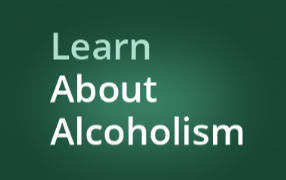Adolescent Alcoholism
More than ever, parents and teenagers need timely, accurate information on adolescent alcoholism and its devastating impact. According to the National Clearinghouse for Alcohol and Drug Information, a national survey found that thirteen percent of youth aged 12 to 17 had at least one serious problem related to drinking during the previous year.
The Clearinghouse notes that teenage alcohol abuse correlates with a rise in risky sexual behavior, while the U.S. Department of Health and Human Services reports an alarming statistic regarding alcohol-related traffic deaths: Thirty-two percent of drivers between the ages of 16 and 20 who died in traffic crashes had measurable alcohol in their blood.
The US Dept. of Health also cites research that shows the negative effects of teenage alcohol abuse can extend beyond those years.
Scientists have said that since a teenager’s brain is still developing, excessive drinking during this critical period could lead to lifelong memory, motor skill, and coordination impairment.

With so many dangers involved, a vital piece of information on adolescent alcoholism concerns the warning signs of this illness. The National Clearinghouse for Drug and Alcohol Information notes that if you, your son or daughter, or a friend has one or more of the following characteristics, he or she may have an alcohol problem:
- Getting drunk with frequency
- A lack of honesty about how much alcohol he or she is using
- Believing that alcohol is necessary to have a good time
- Having regular hangovers
- Feeling lethargic, depressed, or even suicidal
- Having “blackouts” – an inability to recall what he or she did while drinking
Health and Human Services adds that teenagers who show signs of alcoholism may have personality characteristics placing them at greater risk for problems with alcohol.

Adolescent Alcoholism
Reducing Teenage Drinking
Curbing access to alcohol could be the most effective means of reducing teenage drinking.
- Educating bartenders and store cashiers to sell alcohol responsibly,
- limiting alcohol marketing and advertising,
- raising prices on alcohol through tax increases, and
- banning alcohol sales on college campuses.
are among the strategies the National Institute on Alcohol Abuse and Alcoholism (NIAAA) recommends.
If there is any good news in the most current information on adolescent alcoholism, it is in the research cited by Health and Human Services that shows people are prone to their heaviest drinking in their late teens and early to mid-twenties, largely because parental oversight becomes diminished at this time of life while adult responsibilities have not been assumed.
Once the transition is made to a more adult lifestyle with careers, getting married, and parenthood, alcohol consumption tends to drop.
Lead Writer/Reviewer: Kayla Loibl
Licensed Medical Health Professional

I am a Mental Health Counselor who is licensed in both New York (LMHC) and North Carolina (LPC). I have been working in the Mental Health field since 2015. I have worked in a residential setting, an outpatient program and an inpatient addictions program. I began working in Long Island, NY, and then in Guelph, Ontario after moving to Canada. Read More

I am a Mental Health Counselor who is licensed in both New York (LMHC) and North Carolina (LCMHC). I have been working in the Mental Health field since 2015. I have worked in a residential setting, an outpatient program and an inpatient addictions program. I began working in Long Island, NY and then in Guelph, Ontario after moving to Canada. I have since settled in North Carolina. I have experience working with various stages of addiction, depression, anxiety, mood disorders, trauma, stages of life concerns and relationship concerns.
I tend to use a person-centered approach which simply means that I meet you where you are and work collaboratively to help you identify and work towards accomplishing goals. I will often pull from CBT when appropriate. I do encourage use of mindfulness and meditation and practice these skills in my own life. I believe in treating everyone with respect, sensitivity and compassion.
I recognize that reaching out for help is hard and commend you for taking the first step. We have professionals available who would be happy to help you move closer to reaching your goals related to your drinking concerns. You may reach these professionals by calling 877-322-2694.
